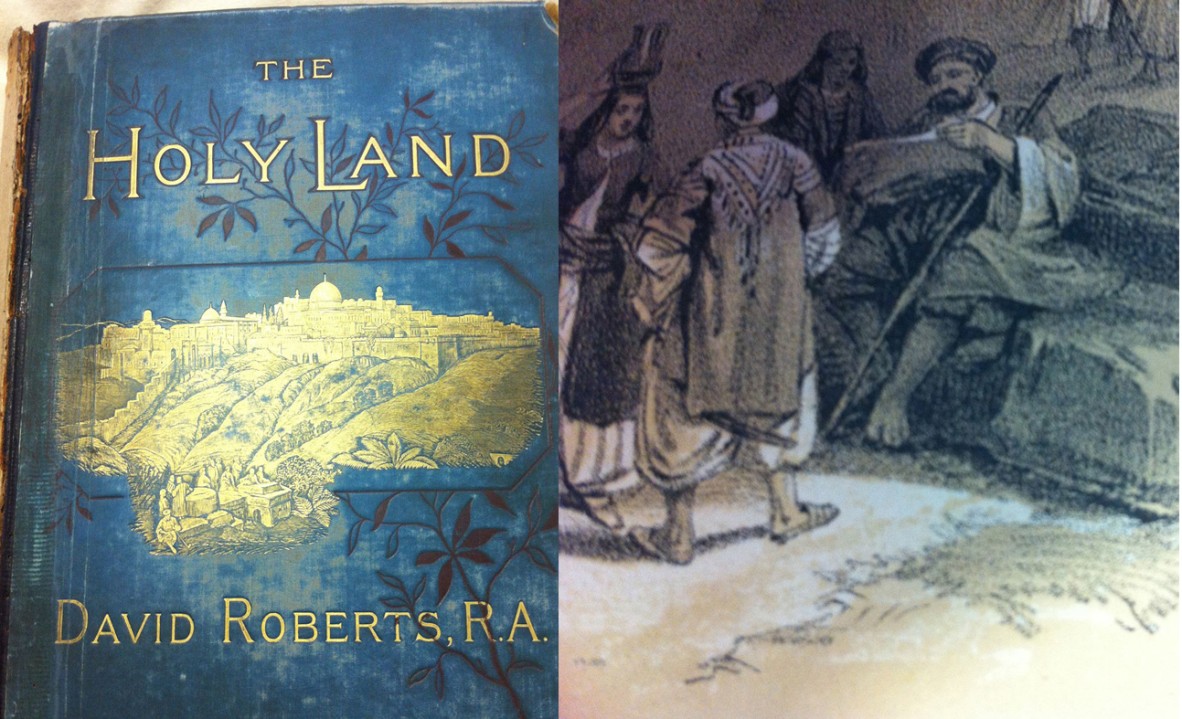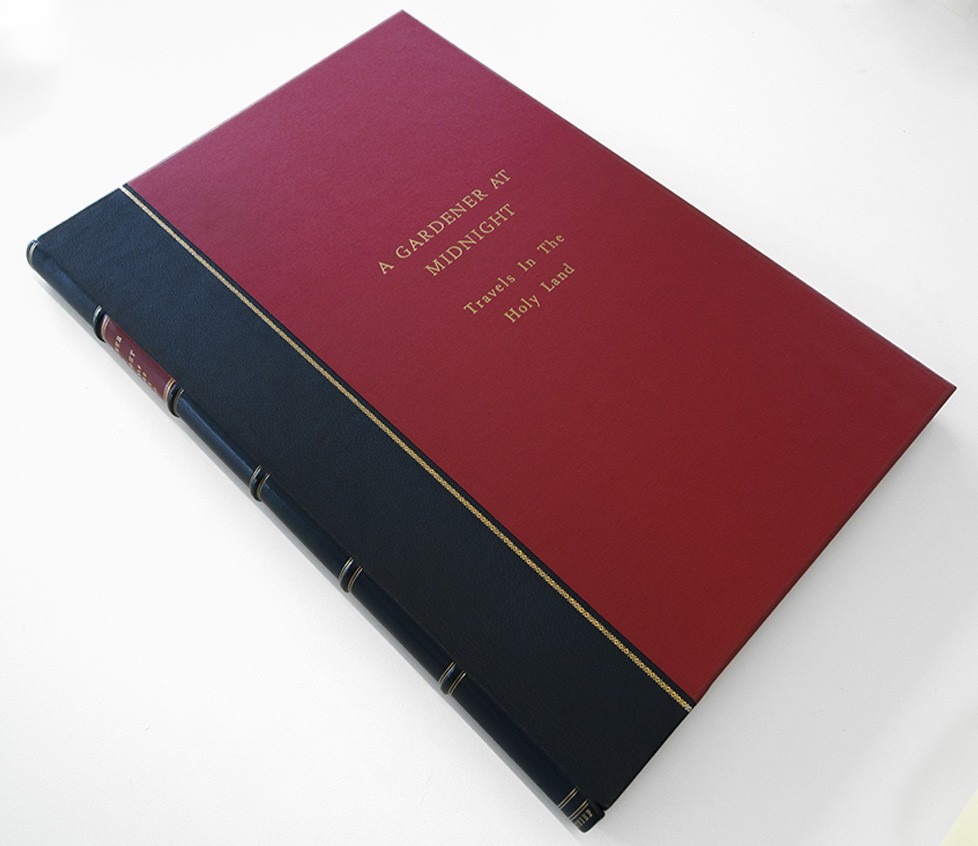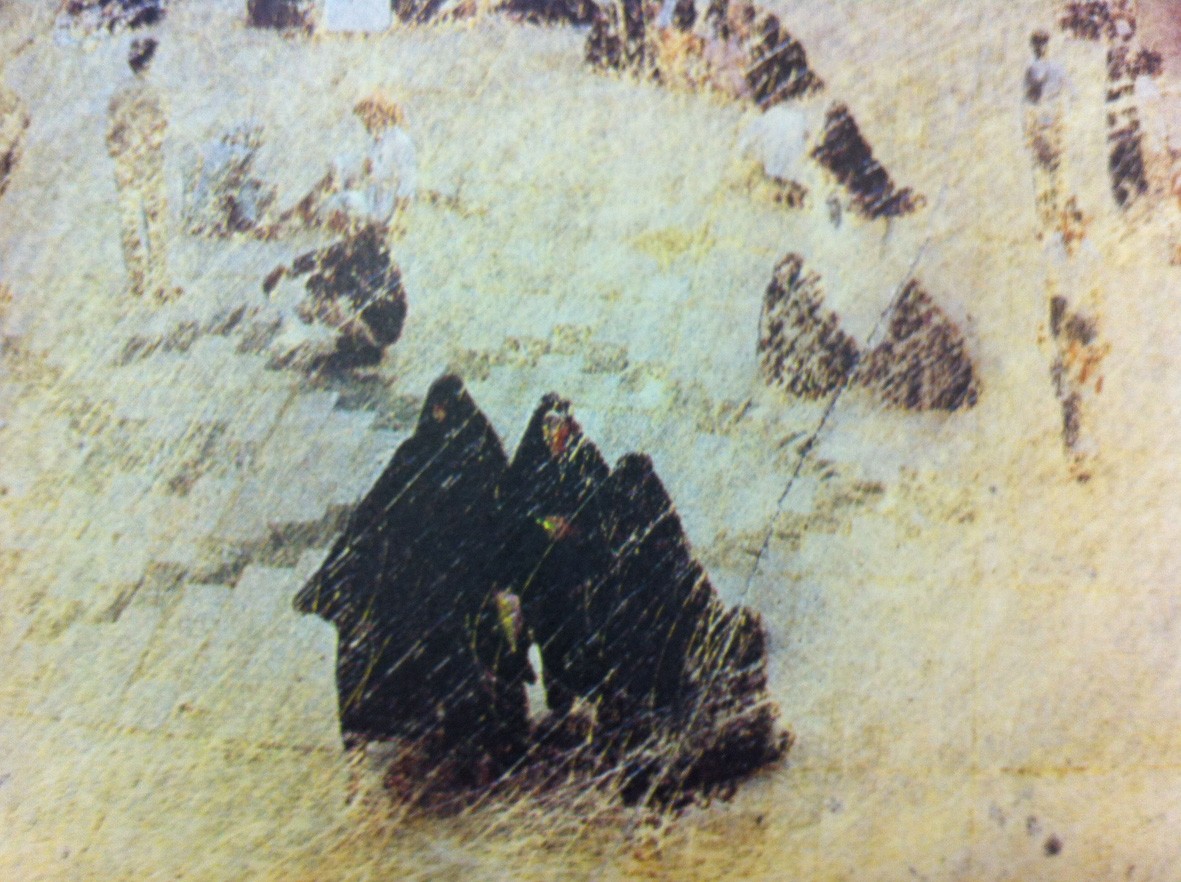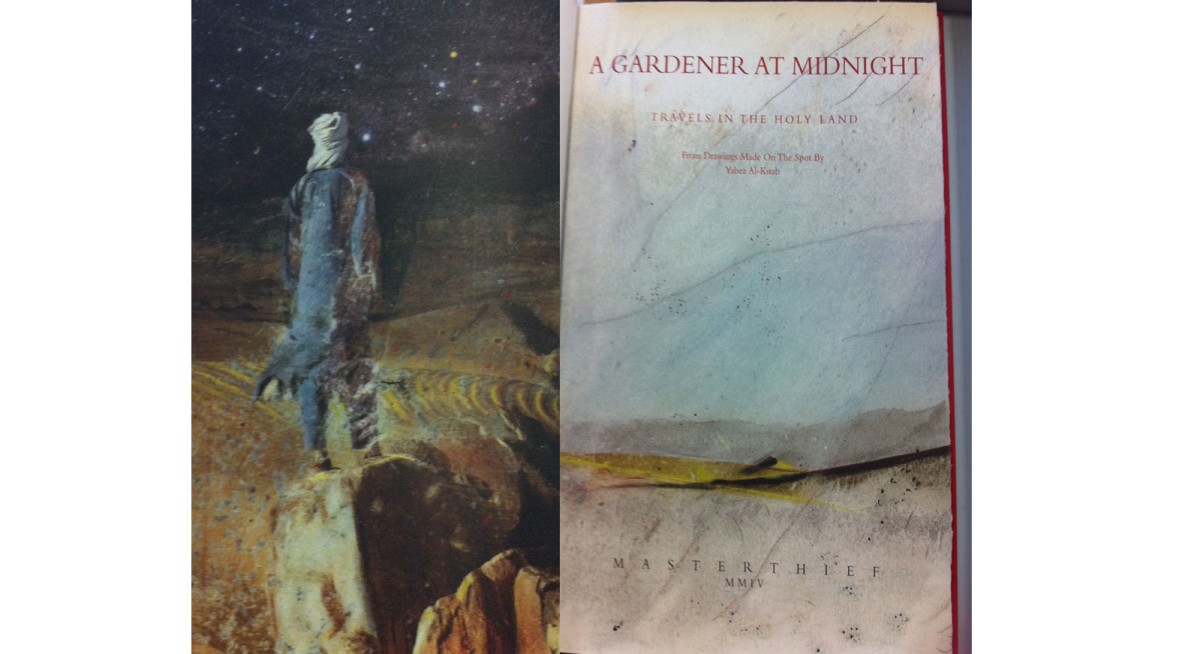Peter Lyssiotis : A Gardener at Midnight Travels in the Holy Land.
By Christene Drewe | 14 April 2015
Artist & guest blogger Normana Wight reviews an artist's book by Peter Lyssiotis.
During the early 19th century, (before photography) a traveller visiting Middle Eastern countries would experience it all from a camel or on foot, recording it in drawing and the written word.


Image courtesy of Doug Spowart
This fabulously elegant artist’s book looks through today’s eyes at the lavish documentation of the nineteenth century travellers.(See above)
The huge ‘coffee – table’ type of book that Lyssiotis references in this work is, ‘The Holy Land’, a Nineteenth Century three volume deluxe memoir of travel, by David Roberts. The large books are in Melbourne; a smaller volume on the same subject, by the same author, is available here at State Library of Queensland. (See top illustration)
Peter Lyssiotis and writer, Brian Castro, have used the LOOK and IDEA of these books, and interpreted them in today’s terms. The illustrations are disruptive, and the text, biting.

The Twenty First Century text, by Brian Castro, makes no bones about the elitist (and arrogant) approach of the British traveller in that supremely patriarchal society.
Lyssiotis’ work was conceived in 2003-4 during the Iraqi war. So the mood of this work is in striking contrast to that of earlier travel records.

Comments
Your email address will not be published.
We welcome relevant, respectful comments.